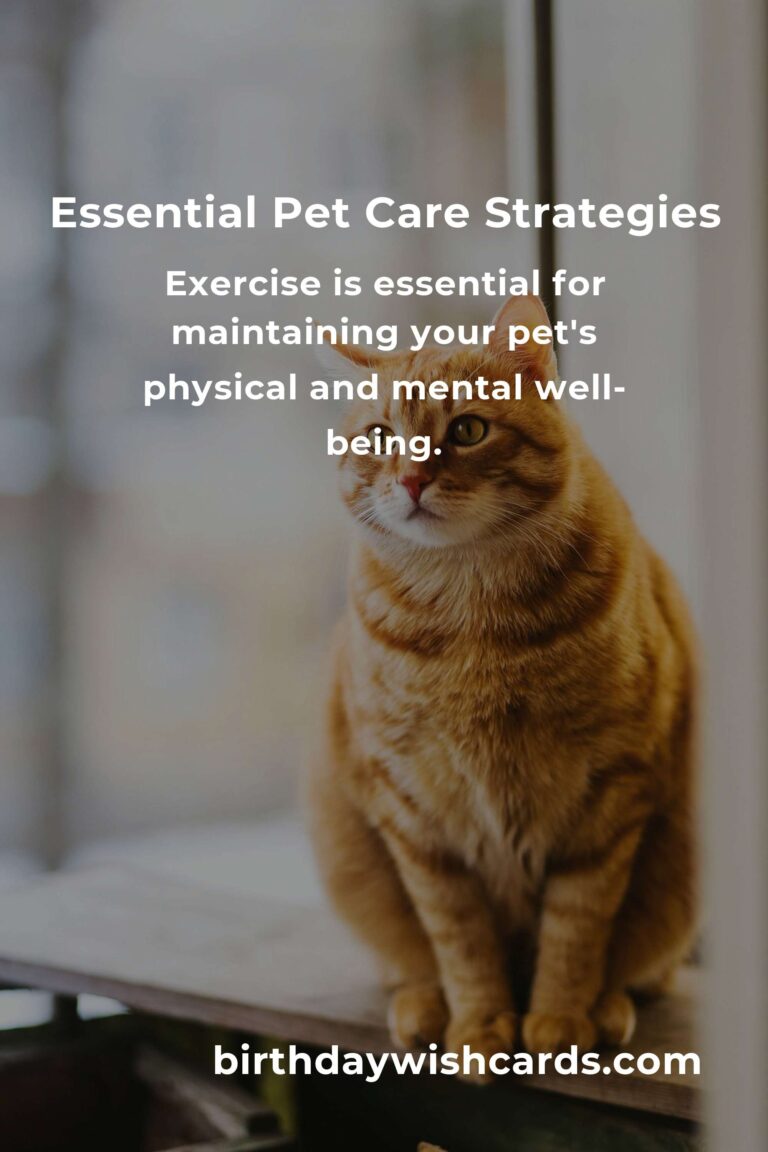
Bringing a pet into your home is a rewarding experience that requires commitment and care. Understanding the essential strategies for pet care is crucial to ensure the health and happiness of your furry or feathered friend. This comprehensive guide will navigate through the key aspects of pet care, providing you with the tools and knowledge to create a nurturing environment for your pet.
Understanding Your Pet’s Needs
Every pet is unique, and understanding their specific needs is the first step toward effective care. Whether you have a dog, cat, bird, or other small animal, recognizing their dietary, exercise, and social requirements is fundamental.
For example, dogs require regular exercise and mental stimulation, while cats thrive in environments where they can explore and satisfy their natural hunting instincts. Birds need social interaction and environmental enrichment to prevent boredom and stress.
Nutrition and Diet
Proper nutrition is vital for your pet’s long-term health. Research and select the appropriate diet that suits your pet’s species, age, and health condition. Consult with a veterinarian to ensure all nutritional needs are met, and be aware of foods that are toxic to your pet.
Regularly monitor your pet’s weight and adjust their diet as needed. Overfeeding can lead to obesity, while underfeeding can cause malnutrition, both of which can have serious health implications.
Exercise and Play
Exercise is essential for maintaining your pet’s physical and mental well-being. Dogs benefit from daily walks, playtime, and training sessions. Cats enjoy interactive toys and activities that mimic hunting. Birds need space to fly and toys to manipulate.
Engaging your pet in regular exercise helps prevent behavioral problems and keeps them healthy and happy. Tailor activities to your pet’s preferences and energy levels.
Grooming and Hygiene
Regular grooming is necessary to keep your pet clean and comfortable. Dogs may require baths, nail trimming, and fur brushing. Cats often self-groom but may need assistance with long fur or matting. Birds benefit from regular nail and beak trimming.
Maintaining hygiene not only improves your pet’s appearance but also prevents health issues such as skin infections and parasites.
Health Care and Veterinary Visits
Routine veterinary care is essential for preventing and managing health problems. Schedule regular check-ups to keep vaccinations up-to-date and to detect any health issues early. Be observant of any changes in behavior, appetite, or energy levels, as these could indicate health problems.
Develop a good relationship with your veterinarian, who can offer valuable advice and support for any health concerns that arise.
Creating a Safe Environment
Ensure that your home is a safe haven for your pet. Remove any hazards such as toxic plants, small objects that could be swallowed, and dangerous chemicals. Provide a comfortable space for your pet to rest and retreat when needed.
Consider your pet’s safety when they are outdoors. Secure your yard to prevent escapes and supervise outdoor activities to protect them from traffic and other dangers.
Socialization and Training
Proper socialization and training are critical components of pet care. Introduce your pet to new environments, people, and other animals gradually to build their confidence and reduce fear or aggression.
Use positive reinforcement techniques to train your pet, rewarding good behavior with treats, praise, or play. Consistent training helps develop a well-behaved and well-adjusted pet.
Conclusion
Navigating pet care strategies may seem overwhelming, but with the right knowledge and resources, you can provide a loving and nurturing environment for your pet. By understanding their needs and taking proactive steps to ensure their well-being, you can enjoy a fulfilling and joyful relationship with your animal companion.
Bringing a pet into your home is a rewarding experience that requires commitment and care. Understanding the essential strategies for pet care is crucial to ensure the health and happiness of your furry or feathered friend. Proper nutrition is vital for your pet’s long-term health. Exercise is essential for maintaining your pet’s physical and mental well-being. Routine veterinary care is essential for preventing and managing health problems. Proper socialization and training are critical components of pet care.
#PetCare #AnimalWellness #PetHealth #PetNutrition #PetSafety

